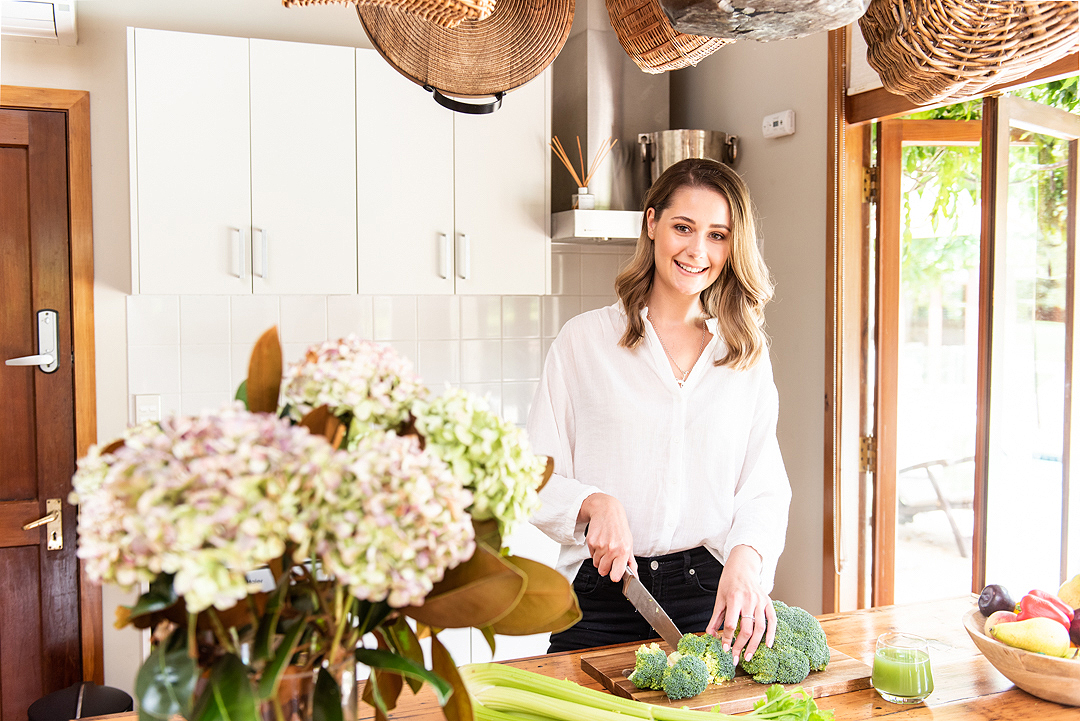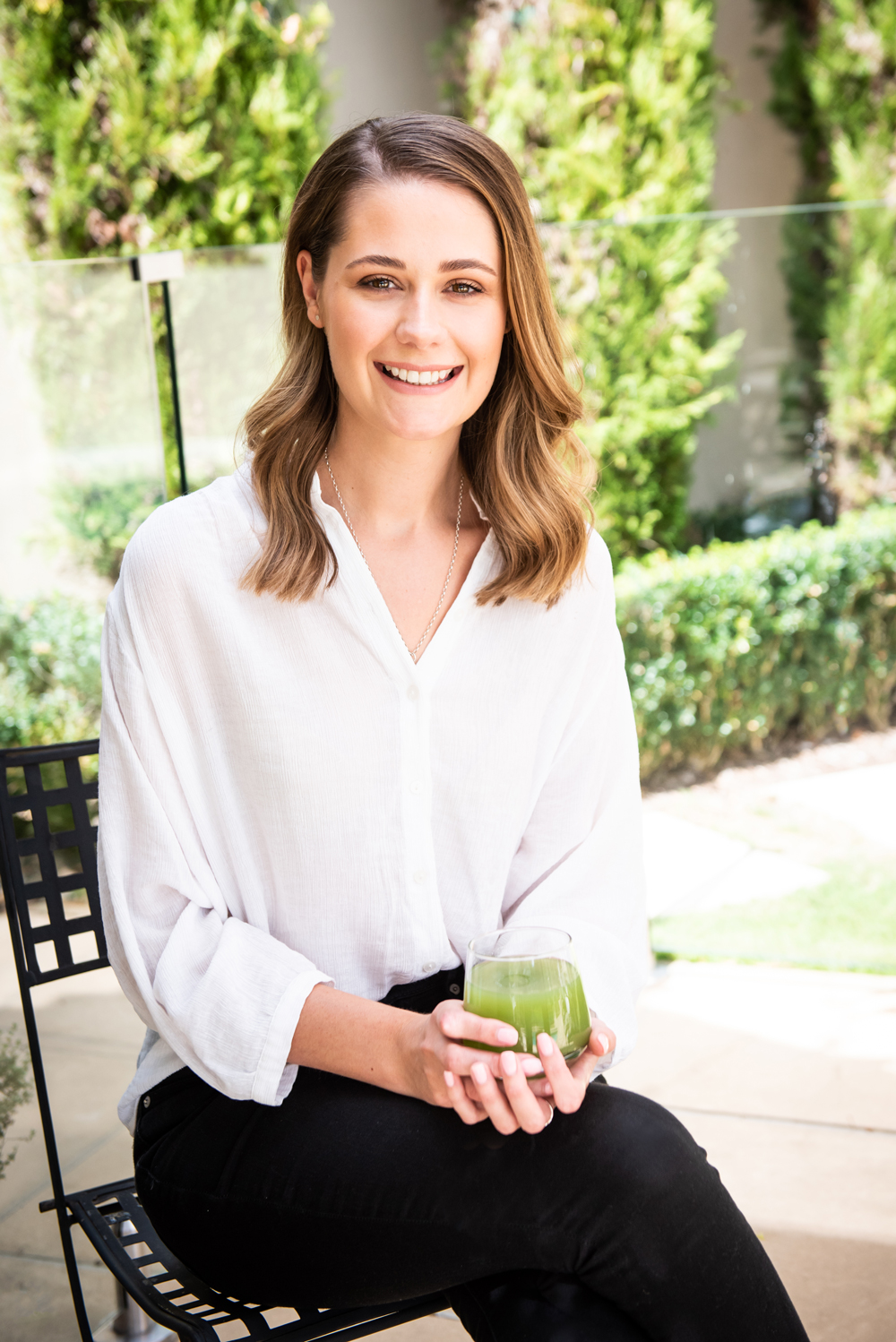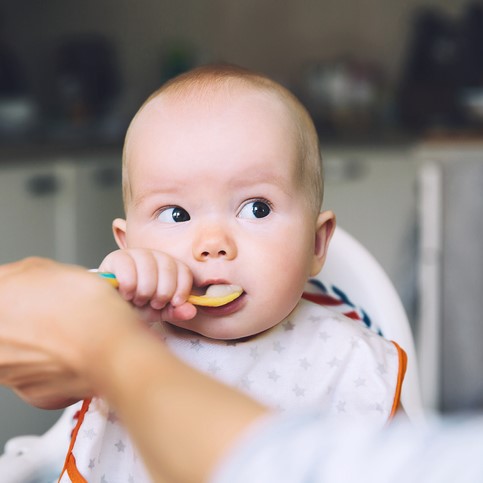How to Optimise Your Fertility When Trying to Conceive

This week, 6-12 September 2021, is Fertility Week in Aotearoa – New Zealand. We spoke to Nutritionist, Medical Herbalist and Women’s Health Expert, Jessica Giljam-Brown of Wellness By Jessica about optimising fertility when trying (or planning) to conceive.
Did you know one in four Kiwis will experience infertility in their lifetime? It doesn’t just happen to those who are trying to have their first child either. Secondary infertility is a term given to females or couples who have had a child before but are having difficulty having another pregnancy.
Whether you have experienced a diagnosis of infertility before or if you’re currently trying to conceive and it’s taking longer than you hoped, growing the whānau you long for can be an emotional and, at times, challenging process.
Like most things health-related, the best thing you can do is be informed so you can make empowered decisions on your journey to pregnancy. So, we spoke to Jessica Giljam-Brown about all things related to optimising your chances of conceive. Jessica has worked with hundreds of people navigating fertility health through her courses and consultations, and all her sessions and packages are designed to give you the tools, education and support you need to make lasting changes with your health. Here, we discuss optimal fertility health, including when you should start preparing your body, how to take care of yourself in terms of nutrition, lifestyle, and overall wellbeing during that time, improving egg and sperm health for conception, as well as signs of ‘normal’ fertility and when there may be cause for concern.

Kia ora Jessica. Can you start by introducing yourself?
I am a Nutritionist and Medical Herbalist and have been practising for eight years now, I have always had an interest in women’s health and fertility. I have a clinic in Auckland and also see patients online from around NZ and around the world.
How far in advance of actually trying to conceive should a couple start thinking about optimising their fertility and why is that period of preparation important?
At a minimum, it is good to start thinking about your health three months before starting to try to conceive. The reason for this is because it takes approximately three months for both eggs and sperm to develop and mature, and you can influence the health of the egg or sperm during this period.
However, the more time you put into supporting optimal fertility the better your outcome will be. If you have a history of polycystic ovarian syndrome, irregular cycles, or endometriosis then it’s best to investigate your fertility health and look at ways to take care of yourself 12 or more months before trying to conceive.
As the saying goes, ‘It starts with an egg.’ Can you explain what that means?
It means that a healthy pregnancy and a healthy baby starts with a healthy egg, but it’s important to remember that the egg is only 50 per cent of the ingredients needed for a healthy embryo to form.
Tell us, what should pre-conception preparation ideally look like for a female, in terms of nutrition, lifestyle, and overall wellbeing?
To start with it’s important to take stock of your cycle and make sure that you’re ovulating and know when it is happening. If you are not ovulating every 26-35 days then that is the first area to start to look at.
Increasing nutrient intake should be the main focus of preconception preparation. Studies show that moving towards a Mediterranean style diet helps to optimise conception rates. Increasing intakes of oily fish rich in omega 3 fatty acids, a mix of animal proteins and plant-based proteins, as well as a great variety of fruits and vegetables will help to increase your intake of essential intake of nutrients.
Lifestyle changes are often overlooked and under-prioritised in fertility healthcare. Making sure you are getting 8-9 hours of sleep each night, taking time out to rest and relax and manage your stress levels plays a major role in positive fertility outcomes.
Exercise is important to help optimise general health and to improve blood flow to pelvic organs – helping to bring fresh nutrient-rich blood to the developing eggs and sperm. Exercise should be part of all fertility health plans, but shouldn’t be overdone. More and more in the clinic, I see women who are over-exercising and this then starts to impact their fertility health. If you notice your energy dip or cycle starts to change length it could be time to reassess your exercise regime.
We hear a lot about folic acid and iodine supplements but choline is being made mention of more and more. Why is this nutrient important for preconception and pregnancy health?
Choline has a whole lot of different jobs in the human body ranging from supporting the nerves and liver to function, helping mood, and working with folate during pregnancy to help your baby’s brain and nervous system develop. In circumstances where an individual has an inadequate choline intake the risk of poor birth outcomes increase. These include neural tube defects, cleft palate and lifelong memory issues. Research on choline and pregnancy outcomes is still early, and more is needed, but advice from leading medical institutes is to optimise dietary intake and use a prenatal supplement that contains choline.
Animal products including meat, egg yolks and salmon are primary sources of choline. Choline is also found in small volumes across a wide range of plant foods including tofu, soy-milk, wheat germ, edamame, peanut butter, oats, nuts, peas, beans, banana, oranges, cauliflower, Brussels sprouts, asparagus and more.
We’ve talked about eggs but what about sperm production? How can a male improve the health of their sperm?
Men have a great opportunity to improve the health of their sperm as they make brand new sperm every 64 days. Key nutrients for healthy sperm include: zinc, selenium, and vitamin C and E. Making sure to load up on the foods that include these nutrients is important but don’t forget that a varied and well-rounded diet is key. Men need to be sure to include exercise in their lifestyle and manage their stress – just the same as women who are preparing for pregnancy.
In what ways can we best support our hormones while actively trying to conceive?
For each woman, this will look slightly different depending on her unique hormonal picture, but good blood sugar control, moderate exercise, and enough sleep and rest are good places to start. A common picture I see is a woman who prioritises everyone around her before herself. This leaves her skipping meals, eating on the run, and choosing low nutrient options because she is time-poor. This can lead to wildly fluctuating blood sugar levels across the day, and cause her to make poor food choices in the evening because she is tired and ravenous. It’s this type of situation that causes women to miss out on nourishing themselves well enough to support a healthy cycle.
In your experience, what is considered ‘normal’ in terms of fertility and what might be some signs that something isn’t quite right?
A normal cycle lasts between 26-35 days from the first day of bleeding until the day before the next bleed starts. The bleeding phase of the cycle should be between two and seven days long, and there should be minimal pain. Some light cramps, but nothing that stops you from living your life. The cycle should be regular for you, meaning that your cycle is always 28 days or always 35 days, ideally not changing between 26-35 days each cycle.
For women between the ages of 30-35 years old, there is only a 20-25% chance of conception each cycle, so it’s perfectly normal for it to take 6-12 months. The research shows that for couples under the age of 35, 80-90% will conceive within 12 months of trying, for the rest it may take just a bit longer or they may need some assistance.
When it comes to pregnancy loss, it feels wrong to state that any loss could be considered normal, but the statistics show that one in four recognised pregnancies end in miscarriage, usually in trimester one. Whilst miscarriage is fairly common, a loss at any stage can be devastating. If you have a miscarriage it’s important to speak to your GP about it and discuss what your next steps should be. For most couples, the next step will be recovery, grieving, time to rest and then to try again if they wish.
For those who have been trying to conceive for a while or have experienced recurrent miscarriages, what should their next step be?
If you have a known underlying health condition that affects your fertility or have been trying longer than a year it is worth speaking to your GP about running some blood tests to check for ovulation or for a referral to a specialist. It doesn’t hurt to get a check-up or a second opinion from a specialist if you are concerned about your fertility, the more information you have the better prepared you will be to make changes and get help if you need to.
Often the cause of recurrent miscarriages is due to poor egg or sperm quality, in this case it is time and diet and lifestyle changes that can make the biggest difference to fertility outcomes – both natural and assisted reproduction. When looking to improve egg and sperm quality the whole health of each partner must be considered and supported, this is where it can be really helpful to have a fertility specific nutritionist in your corner.



